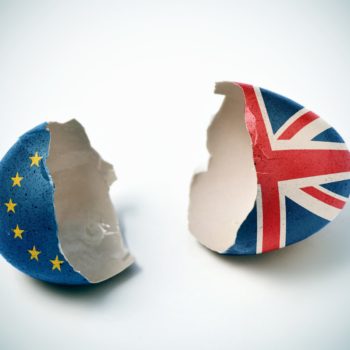SMEs likely to be hit hardest by Brexit: Central Bank chief economist

Loans to the SME sector dropped from €35m in 2010 to €16m in 2016, according to Gabriel Fagan, the Central Bank of Ireland’s chief economist
10 April 2017
Irish small and medium enterprises are probably the most sensitive to the Brexit fallout, according to Gabriel Fagan, the Central Bank of Ireland’s chief economist.
Fagan noted that loans to the sector dropped from €35m in 2010 to €16m in 2016 as more SME owners concentrate more on repaying borrowings rather than taking on fresh debt.
Irish SMEs face higher funding costs, and greater collateral demands than most peers across the European Union according to the European Investment Bank.
A recent report released by the Irish Small and Medium Enterprises Association which surveyed 1,416 ISME members, found that 56% of those surveyed predicted a change in turnover for their businesses and 66% expect changes in terms of their profitability following Brexit.
Positively, 77% stated that Brexit would have no effect on staffing levels while 25% of those surveyed stated that more than 20% of their imports or purchases were Sterling denominated or from the UK.
Crucially 88% said they would not relocate their business with only 11% considering relocating their business to the UK.
However ISME issued its survey findings with a health warning saying they may not represent the broader sectoral impact of Brexit on the SME sector.
ISME membership is over-represented in the services sector, by comparison with the Central Statistic Office’s breakdown of the 238,000 enterprises in the Irish economy.
Commenting on the survey findings ISME CEO Neil McDonnell said: “We believe that the services, financial and insurance sectors on aggregate will have a lower level of direct exposure to Brexit-related impacts than will the industrial, construction and distribution sectors.
“These results do not give the complete picture of Brexit on the SME sector. The real scale of impacts, direct and indirect, will only truly be known when we see the shape of the agreement between the European Union and the United Kingdom.” he added.



 Print
Print




Fans 0
Followers